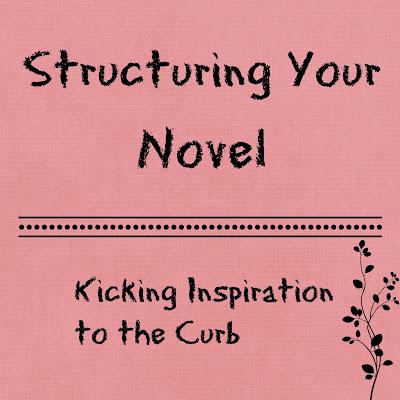 Not everybody was meant to be a writer. Writing requires a pesky thing known as self-discipline, which basically means that you have to be able to make yourself work every day. Regardless of how you feel.
Not everybody was meant to be a writer. Writing requires a pesky thing known as self-discipline, which basically means that you have to be able to make yourself work every day. Regardless of how you feel. Or if you want to.
Or if you need to.
Or if you want to.
(Oh, I said that already? Well, note the importance of it.)
Writing is hard, but it is just as fulfilling as it is challenging. There are far more pros than there are cons, and when you think of it that way, it makes it all a little bit easier. When it comes to writing a novel, a lot of people begin with the right idea and a fair amount of inspiration, but they burn out halfway through the process. It's easy to lose sight of the original plot (and subsequent point) of the book when you're slogging through a brain fog, trying to remember why you ever subjected yourself to this torture.
Oh, wait.
You wanted to be a writer.
Correct?
Here are some simple things you can do to keep your novel structured, meaning, keeping yourself sane and your novel flowing.
- Make an outline. I know, I know. You don't want to make an outline. You just want to go with the creative flow and let it all fall onto your manuscript like there's no tomorrow. Sometimes you can do this. That's basically how I wrote State of Emergency, but even then I had a loose outline of where I wanted my story to go. If you create a basic outline that tells you where your characters and your plot is headed before you get there, it will be easier for you to keep your final goal in mind. It will help you avoid getting totally offtrack when you're writing.
- Know your characters. Your fictional characters should be just as real as you and me. They need a backstory, and you need to be aware of what exactly that backstory is. From conception all the way to the present, know what has formed their personalities, so when they take action in a certain situation, we know why they're doing it that way. There should be a reason for everything your character does. Don't be random. Everything we do in real life is shaped by our personalities, which is in turn shaped by our past.
- Don't get stuck. Sometimes it's hard to finish a scene. Especially if it's a pivotal, dramatic scene that needs to be perfect to make it sing the way you want it to. In that case, I don't force myself to write it anyway. I will walk away from it and work on something else and come back to it later. Don't get stuck on it. Forced writing is stiff writing.
- Know your plot points. When I teach kids to write stories, I like to show them a plot diagram, which is basically a mountain that shows: Beginning, Rising Action, Climax, Falling Action & Resolution (End). Know your major plot points, and that's basically all the outline you'll need.
- Say goodbye to inspiration. You know how they say that some things are truly works of inspiration? Ha. That's true in many cases, but when you're a writer, you are not going to feel inspired to write the great American novel every day of the year. Believe me. You will have sick days, emotional days, busy days, fun days, vacations. You need to kiss inspiration goodbye. Like my dad says, "Inspiration is for amateurs." Write whether you feel like it or not. Don't force it, but don't wait for your muse to feed you by hand. Grab your muse and start running without it. You don't need it. All you need is your story.
- Make your point. Don't be one of those authors that spends 500 pages on worthless dialog and emotional reminiscing. That doesn't add to a story. Everything in your book should contribute to moving your story forward. In other words, only write scenes that are either A) building your characters, B) foreshadowing, C) moving the story towards the climax and resolution, or D) giving the reader a piece of vital information. Anything outside of this is unnecessary. This is why you need structure. Every scene in your book will have a purpose if you know what you're building up to.
 Remember what they say: Easy writing makes hard reading. If you're writing creatively without some sort of structured mindset, chances are you're in for a lot of revision. I'm not saying to avoid writing freely - I'm saying that when you're taking on something as big as a novel, know where you're going with the idea. Take that seed of inspiration and tame it. It's yours. Make it work for you, not the other way around. You are the author, and you are the creator of this story world. Do what seems natural, but make sure that everything that happens in your story is moving the plot forward towards the resolution.
Remember what they say: Easy writing makes hard reading. If you're writing creatively without some sort of structured mindset, chances are you're in for a lot of revision. I'm not saying to avoid writing freely - I'm saying that when you're taking on something as big as a novel, know where you're going with the idea. Take that seed of inspiration and tame it. It's yours. Make it work for you, not the other way around. You are the author, and you are the creator of this story world. Do what seems natural, but make sure that everything that happens in your story is moving the plot forward towards the resolution. 

